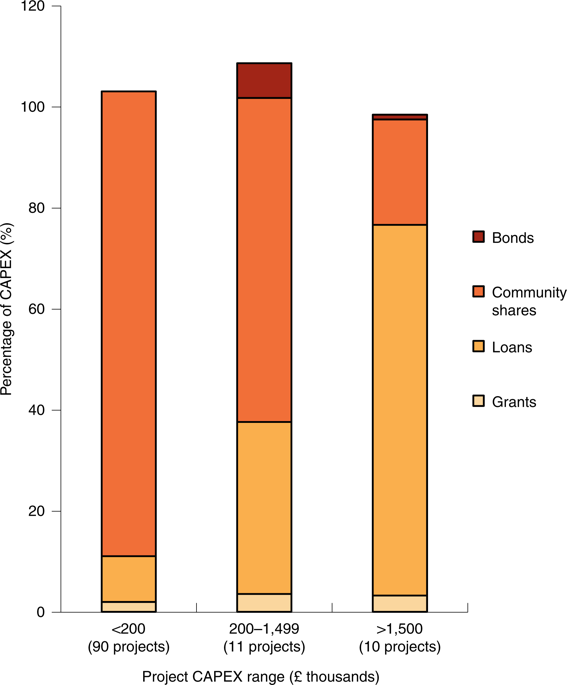Nature Energy ( IF 56.7 ) Pub Date : 2020-02-10 , DOI: 10.1038/s41560-019-0546-4 Tim Braunholtz-Speight , Maria Sharmina , Edward Manderson , Carly McLachlan , Matthew Hannon , Jeff Hardy , Sarah Mander

|
Community energy projects take a decentralized and participatory approach to low-carbon energy. Here we present a quantitative analysis of business models, financing mechanisms and financial performance of UK community energy projects, based on a new survey. We find that business models depend on technology, project size and the fine-tuning of operations to local contexts. Although larger projects rely more on loans, community shares are the most common and cheapest financial instrument in the sector. Community energy has pioneered low-cost citizen finance for renewables, but its future is threatened by reductions, and instability, in policy support. Over 90% of the projects in our sample make a financial surplus during our single-year snapshot, but this falls to just 20% if we remove income from price guarantee mechanisms, such as the Feed-in Tariff scheme. Renewed support and/or business model innovations are therefore needed for the sector to realize its potential contribution to the low-carbon energy transition.
中文翻译:

英国社区能源的商业模式和金融特征
社区能源项目对低碳能源采取分散和参与的方法。在这里,我们根据一项新调查对英国社区能源项目的商业模式、融资机制和财务绩效进行了定量分析。我们发现,商业模式取决于技术、项目规模以及根据当地情况对运营进行微调。尽管较大的项目更多地依赖贷款,但社区股份是该行业最常见和最便宜的金融工具。社区能源率先为可再生能源提供低成本的公民融资,但其未来受到政策支持减少和不稳定的威胁。在我们的样本中,超过 90% 的项目在我们的单年快照中实现了财务盈余,但如果我们从价格保证机制中剔除收入,这一比例将降至 20%,例如上网电价计划。因此,该行业需要重新获得支持和/或商业模式创新,以实现其对低碳能源转型的潜在贡献。


























 京公网安备 11010802027423号
京公网安备 11010802027423号